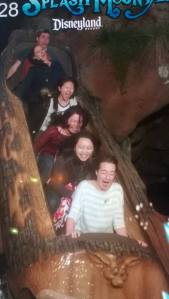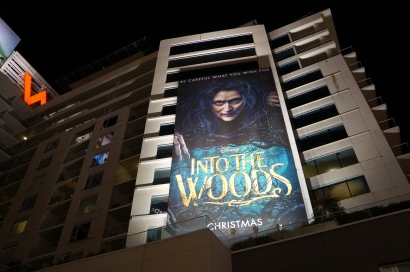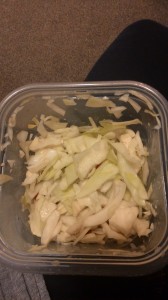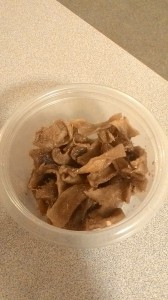
“I spent too much time trying to conceptualize who Dionysus is, his body, his voice, but it was until the preview night that I realized that Dionysus was an energy, an infectious disease. And the disease needs a host,” said Thomas Elms, who plays Dionysus in The Bacchae 2.1.
It was his response to my question about the repeating lines in the play. There are some sentences first said by Dionysus and then recited again by two women. I was caught by this arrangement, wondering if the women were so brainwashed by Dionysus that they spoke exactly words of him.
My guess was right. The orange woman, starred by Ghazal Azrbad, explained that “It’s a type of energy you don’t really know. I think I repeat him because Dionysus affected me. Sometimes you are influenced so much by someone that you are thinking, breathing and behaving like him. And when you speak, you think it’s coming from your own brain but you were actually inspired by him.” Orange woman, on the other hand, is implied as “on her way of becoming Dionysus” since orange is the color of Dionysus. I like to imagine that the Dionysian disease finds the orange woman as a host to cling on as well.
After the explanation, I suddenly realized the frantic performance Pentheus had on stage as well. Despite his efforts to stay rational, he became more and more paranoid and eventually tricked by Dionysus to disguise as a woman. Similar breakdown takes place in “The Death of Venice” and once again proves the invincibility of Dionysus.
This is my second time in Frederic Wood Theatre watching plays put on by UBC Theatre majors. Twelfth Night was undoubtedly witty and funny, but Shakespearean language was still distant to a modern audience like me, despite the fact that I had actually read the play in class. (Ok, I know I am a bit shameful as an English major.)
The Bacchae 2.1, on the other hand, was also adapted by a classic play of Euripides, my favorite Greek playwright. (Yes, Medea!) But polished by American playwright, Charles Mee, it is perfectly written in contemporary yet poetic language that flows so naturally. I felt myself floating with the sparkling language in the universe of words. It was so good that I want to read the play in script after watching it to appreciate the sentences slowly.
A big surprise tonight was that there was a Q&A with the director and the cast after the play. Without this chance, I would definitely leave the theatre missing a lot of the important details. I was also amazed how deeply the actors contemplating on their characters.
“When I was stripped out, that was the most vulnerable moment I’ve ever had on stage. That reminds me whenever I was on stage wearing the suit, I know that i was just wearing that tiny underwear below. And that helps me to know my character more,” said Matt Kennedy, the actor of Pentheus. From an extremely masculine man to be stripped out everything except a piece of underwear and was dressed as a glamourous woman in a maroon night gown, he underwent a transformation on stage. But his identity was still revealed in the end and caused his death. Perhaps it suggests that femininity wasn’t about putting on girly clothes but to see oneself truly as a woman. Even though Pentheus was dressing like a woman, but that was just his projection of what a woman should look like from a perspective of a man. It was a reversion when he took on the role of an objectified sexy woman.
-and-the-cast-of-The-Bacchae-2.1-Photo-Tim-Matheson_1200_613.jpg)
The cast also points out their discovery about cross-gendered performance. The audience burst into laughter when they saw Pentheus dressed like a woman but there were only a few giggles when the animal masked woman wearing a gigantic red penis walking seductively. I’m suspecting that the audience laughed at the former because it was designed to be laughed at. It was hilarious to see a man in a night gown playing sexy. However, when a woman challenges the patriarchal society by wearing the symbol of masculinity, it was not that funny for men. We can accept women put on men’s clothes to show that they as capable as men. But when a woman explicitly strolling around with a penis, it seems like a direct challenging of our own culture. Do we look at it the same as a man wearing bras or skirts? I assume there is still a subtle difference between the two. But I don’t know how to analyze deeper with my ridiculously little knowledge.
The play also journeyed from male narrative to female voices. For the first half, the woman just sat silently by the stage with similar black dresses. They were the extension of the audience. Matt pointed out that it was helpful for him when he was giving his long speech. “Having someone watching you and giving you response is so different from playing by yourself,” said him. Isn’t it the magic of theater? It is the art of watching and being watched. Actors can feel the stare from the audience and the audience also feel the actors are talking right to their eyes. Sometimes when the boundary of the two is blurred, it is even more interesting.
However, don’t these silent women on stage represent the women in the society? They are often unrepresented, and even when they do present, they are silent. They can only submissively listen to men going on and on. Perhaps this is why some women follow Dionysus to the mountain, a place where they find their own voice. They take off their uniforms, daring to show their uniqueness. They speak up their mind even when it’s obscene or outrageous. And the audience feel ironic when Pentheus came to them claiming she was merely an “usual woman.” No ordinary woman will be able to give up her well-scripted life and break the limit of social restraint.
[Excerpt from the script]
These women have many qualities, as we will see in the course of the piece, but all of them must, first of all, be artists: dancers, singers, operatic singers, players of musical instruments, Butoh performers, animal trainers, herders of peacocks or herons, or possessed of other extraordinary and highly developed arts that they perform with such power and beauty as to break your heart with that alone.
These women are related—politically, historically, and spiritually—to the agrarian, democratic, matriarchal Minoans, who were always shown bare-breasted in Minoan art. Whether or not these women are bare-breasted, they should have large, flowing skirts of spectacular colors, wonderful hair, hundreds of bright ribbons in their hair, astonishing necklaces or other pieces of jewelry.
So they are not just women, not just third world women, not just people from the revolutionary periphery, not just artists, but Dionysian artists.
It was interesting when the actors mentioned their worries about enraging some audience due to its sensual scene and language. “When I first read the script, the first thing came to my mind was: how many people would walk out? And how many people would be willing to stay?” said Javier Sotres, who plays 2nd Aide. But in the past, the play was actually presented to please gods. (I don’t know how ancient Greek people feel about it but I think they are quite accepting to it since Greek tragedy is the most bloodthirsty and melodramatic genre of drama I knowXD) My friend and I were also surprised that the actors and the production team had the concern. Is UBC that conservative? And there weren’t even any nudity or sex scene!
Someone asked about the fear and the challenge the cast have of the play. And I really admire the way they see themselves as professional actors even though they are still students. Witnessing twice of their talented performance, I sincerely believe they are promising stars in theatres or any kind of performance. Watching them perform makes me want to be on stage myself as well. Am I capable of acting? To act or not, I will be a theatre lover to death. Because I know for sure, I’m one of the Bacchae woman, infected by Dionysian disease.
Notes:
1. I was debating whether I should write in English or Chinese, but since I already took notes in English and I didn’t want to translate the actors’ words, I chose to write in English. Thankfully I still managed to convey most of my thoughts, with little descriptive details though.
2. I write in the style of a news review and I couldn’t help but quote the actors’ words. But I didn’t record all the Q&A session so the words are highly likely be varied by my own linguistic preference.
3. I ended up not going to Ian’s party because of the play. Slightly regretted that I should still showed up before the play started, but I guess I wouldn’t be able to focus on the performance after a feast. So, a worthwhile trade off!
4. Read the script here!
5. I found out that NTU also put on the play in 2013. Read the review here.
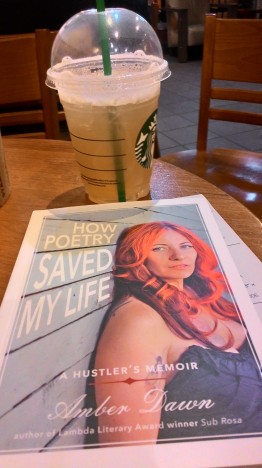


-and-the-cast-of-The-Bacchae-2.1-Photo-Tim-Matheson_1200_613.jpg)


